Early Hearing Health Screening
Fall 2019 - Spring 2020
Olin College of Engineering
My Engineering Capstone project focuses on making early hearing health screening accessible in majority-world contexts through the development of an affordable otoacoustic emissions (OAE) screening device. This project is part of the Affordable Design and Entrepreneurship (ADE) Capstone program, a joint collaboration between Olin College of Engineering, Babson College, and Wellesley College. Each year, a team moves their project forward and also prepares materials that will help the next team to pick up the project where the last team left off. Ours is the ADE Global Health team.
This is the launch year of the Early Hearing Health Screening project for the Global Health team, so much of the work we’ve performed so far is foundational. Our team focused on forming connections with existing organizations operating in this space, researching and investigating the technical components of current OAE technology, and finding an initial location to visit and eventually find partners in that area to deploy our product for the long-term.
In our first semester, we focused on setting the groundwork for the project: building connections with those already working on infant hearing screening, and goal-setting for the team.
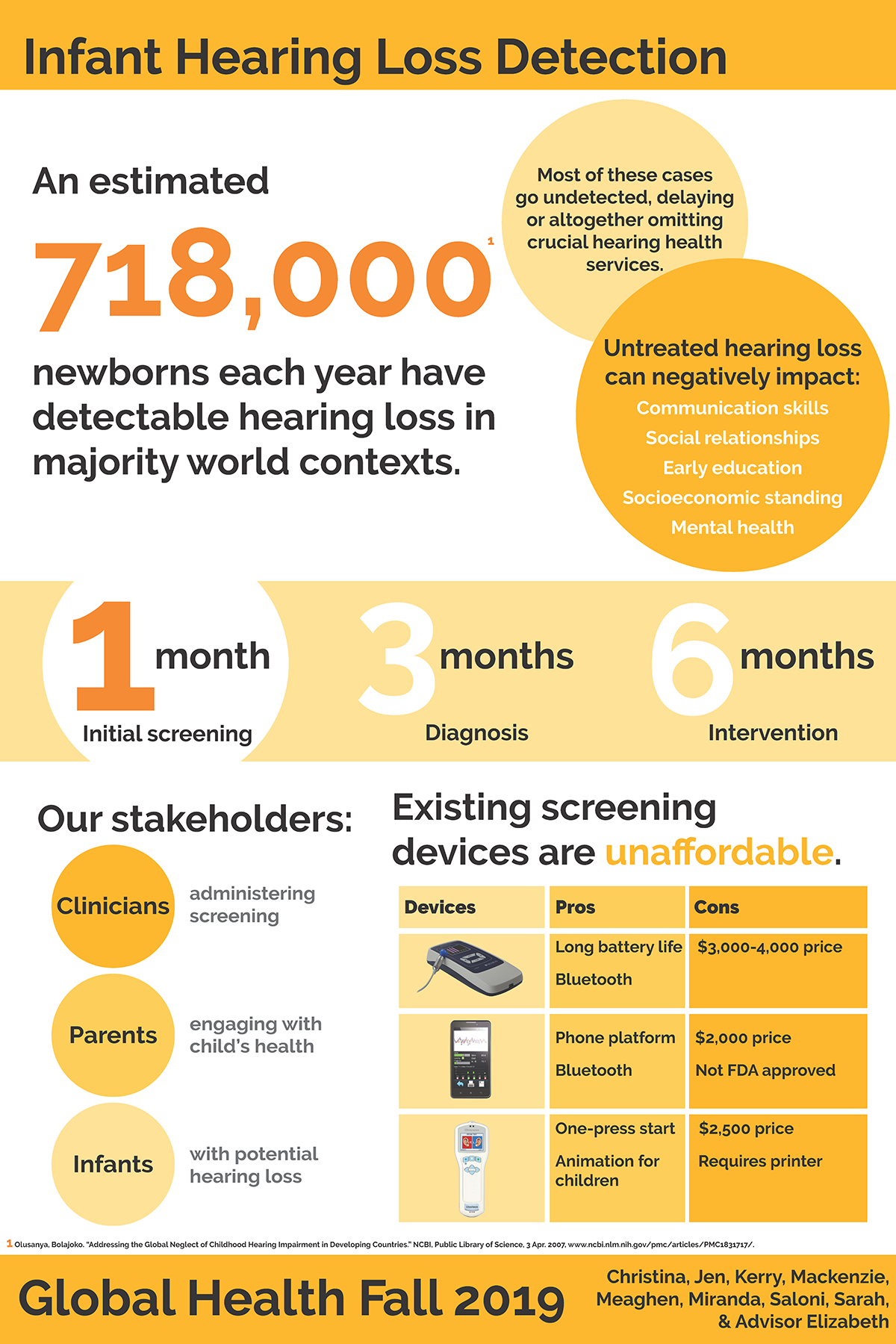
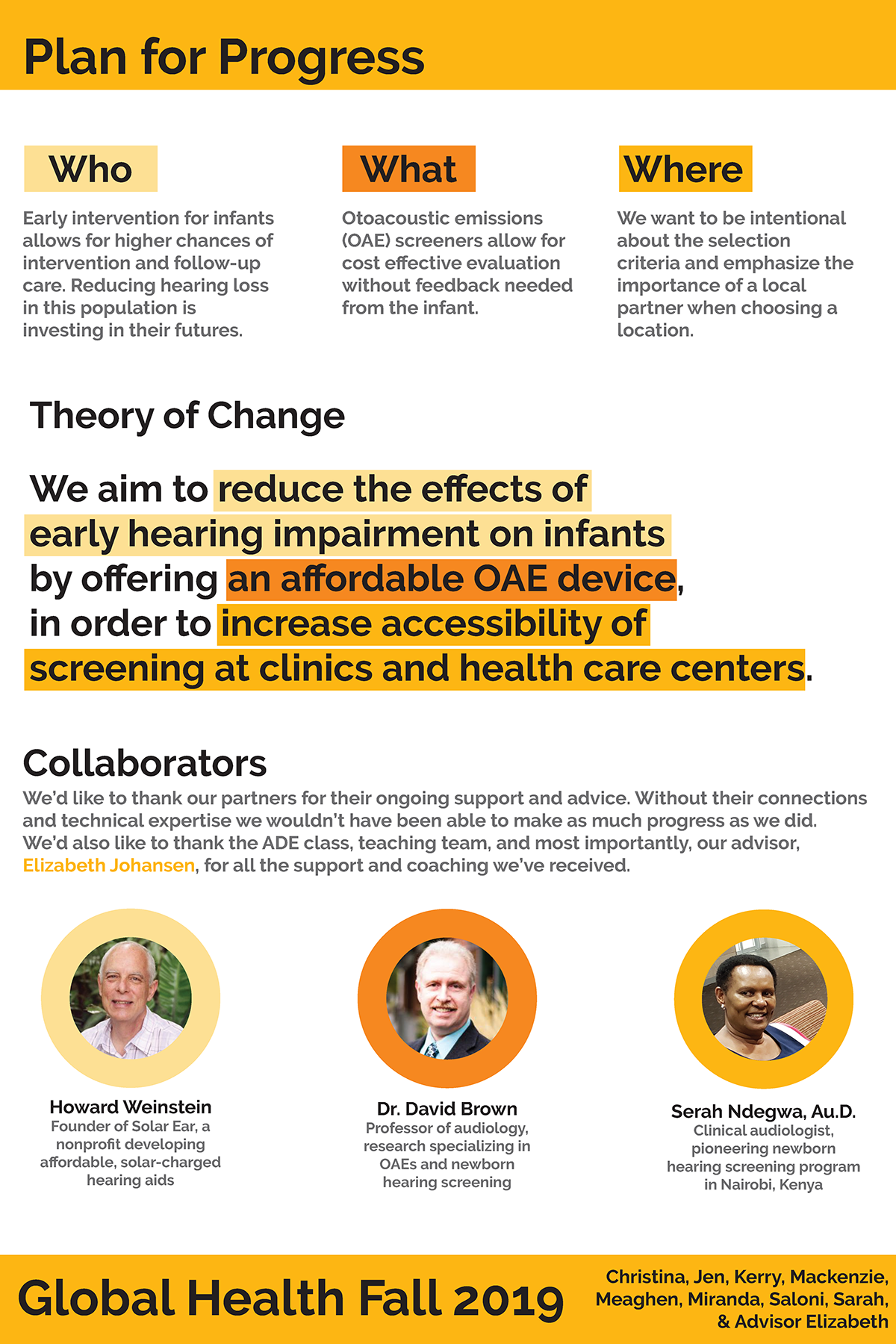
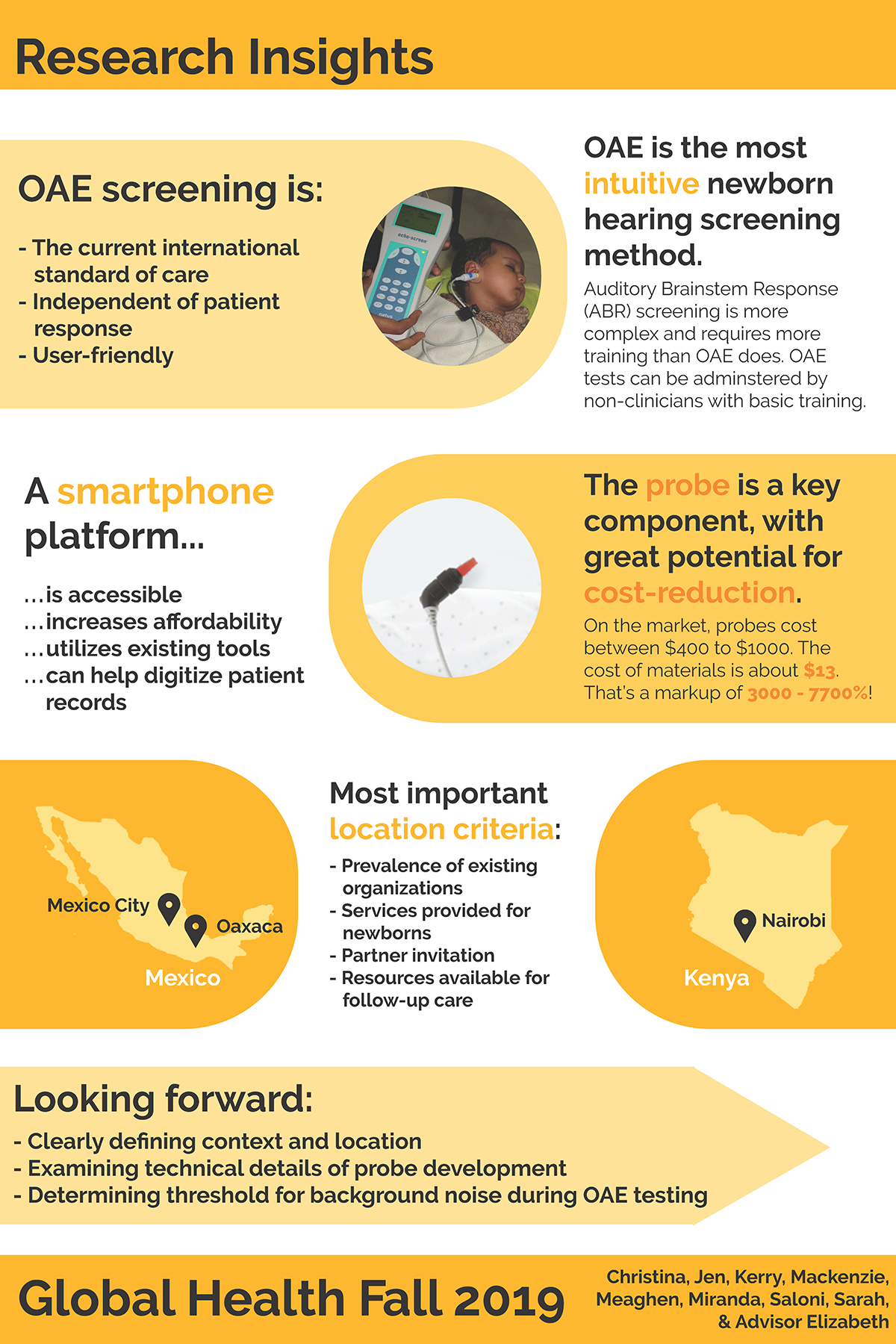
The first poster gives an overview of the issue we want to tackle, our key identified stakeholders, and a summary of existing OAE screening devices. We also want to highlight that an affordable hearing device alone is not going to eradicate early childhood hearing loss; it is an important first step, ideally occurring in the first month after birth as outlined by the Joint Committee on Infant Hearing (JCIH).
The second poster summarizes key components of our project moving forward, and highlights our proposed theory of change. It also identifies some key connections we made with experts in the space this semester.
The third poster outlines some of our key research insights this semester, giving a little bit of background on why we chose OAE over other hearing screening methods, the use of a smartphone platform to reduce cost, and identifying the technical hurdle of creating a probe for our device. It also outlines criteria that we are looking for in possible partner geographical locations.
The following video gives an overview of our project and activities in our first semester, including a trip to the Coalition for Global Hearing Health conference, hosted in Tempe, Arizona.
In our second semester, we continued to develop our connections. We also formed crucial networks in Colombia, where we believe we can support their newly instituted Universal Infant Hearing Screening program, and began prototyping an OAE device in earnest, an effort lead by Emma Westerhoff.
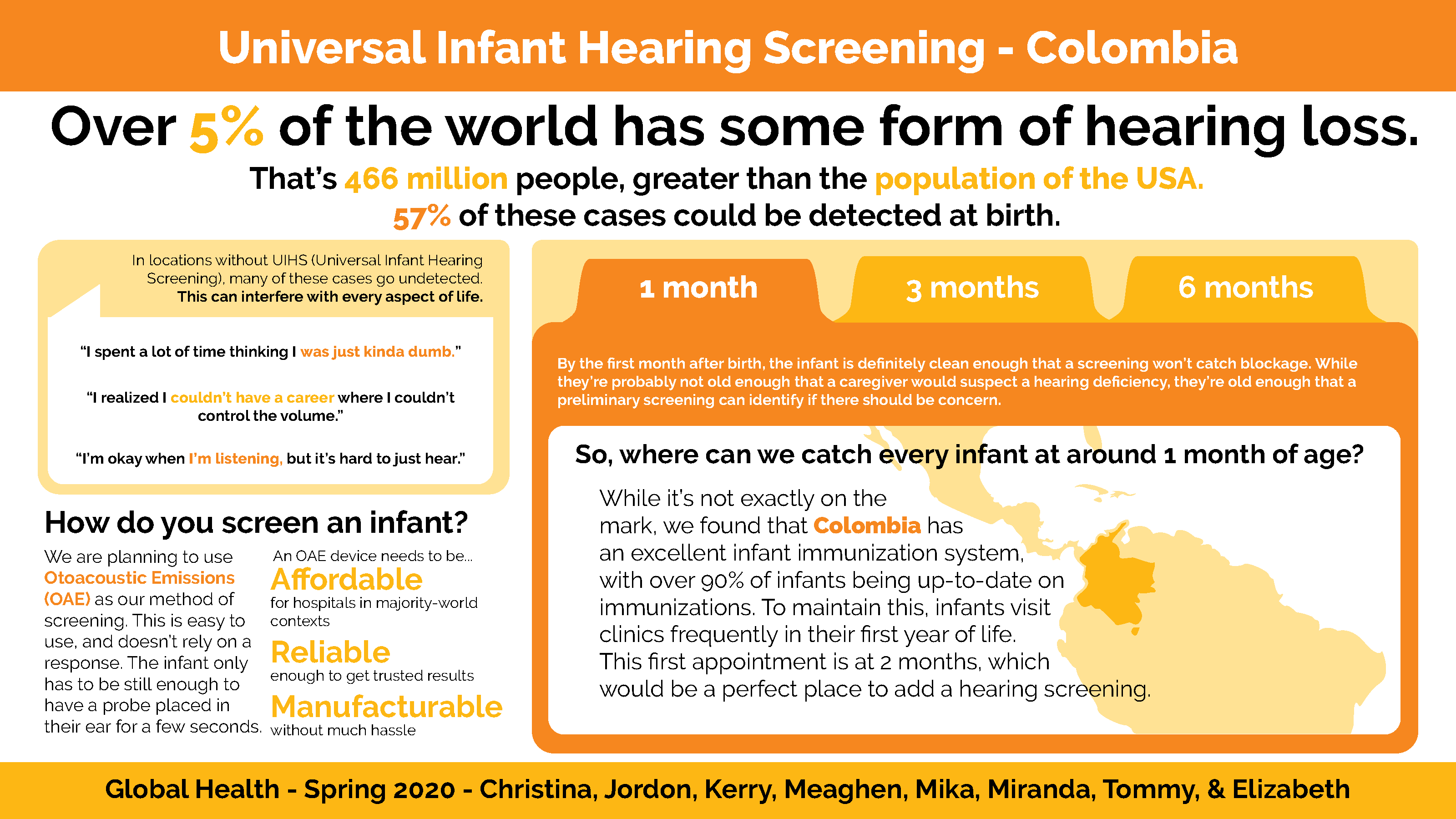
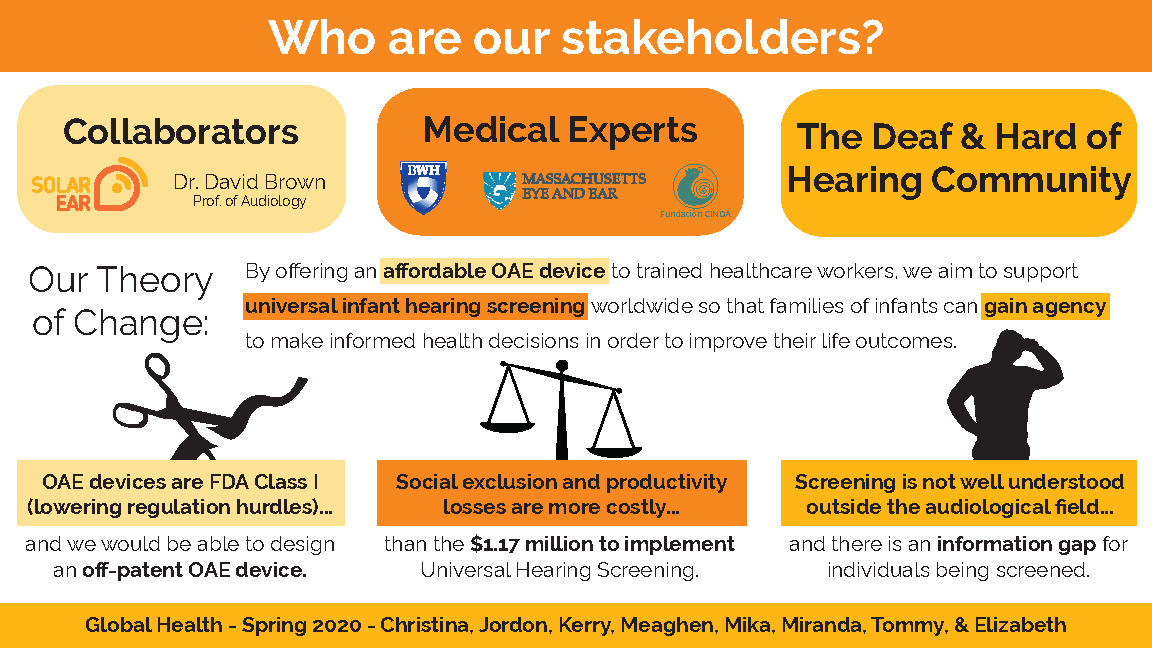
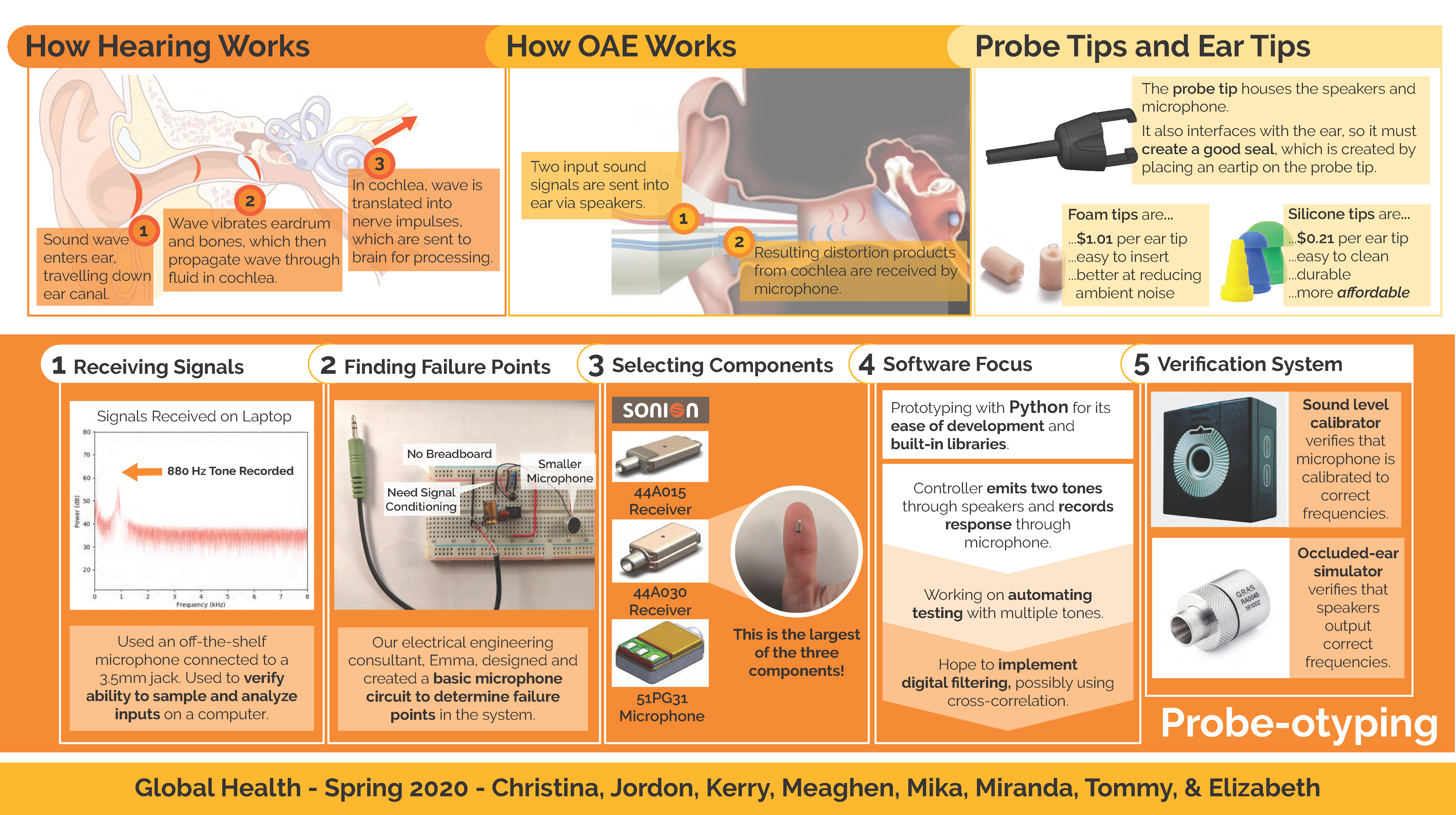
If you have questions, comments, or specific interest in this project, please reach out through my email or to Elizabeth Johansen, our team advisor, at elizabeth_johansen@olin.edu.